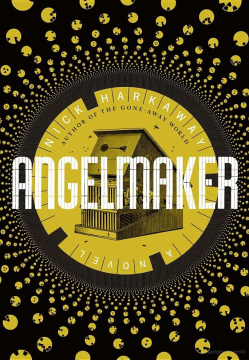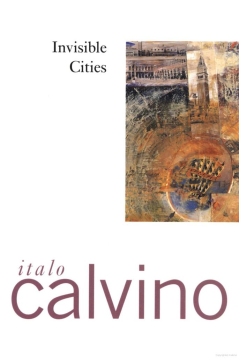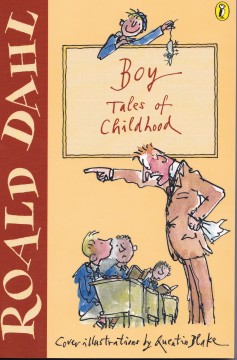A lot of people have asked me if I’ve done anything fun with my summer. My full-time job doesn’t give many vacation days (sorry, students, but that’s real life for you), so I haven’t had the chance to travel much or go to the beach often. But I have been reading. A lot.
When I give that answer, I often receive an expectant nod, waiting for me to list off my other accomplishments, but I really don’t have much else to say. I haven’t finished many knitting projects or met a new boyfriend. Sure, I watched Game of Thrones and Orange is the New Black, but barely made it out to the movie theatre. Instead I’ve spent my free time joyously buried in novel after novel, whipping through stories at a breakneck pace and then running down to the bookstore to find some more. My side table has never had less than five books queued up, waiting for me to get to them. The staff at Russell Books—absolutely the best used bookstore in the city—are all quite familiar with the neon-dyed redhead who giddily seeks out the novels on her BookLover app and rarely leaves empty-handed; I’m just lucky that there’s no such thing as a legal limit for book consumption the same way there is for booze.
So, I’ve had the chance to read some absolutely incredible books this year, and while some have been disappointing, none have been boring. I’ve rediscovered my love of reading in a way I haven’t been able to indulge since before university, and I’ve sought out the most bizarre, funny, gorgeous and horrifying things I can find. While the school year is about to start and recommended textbooks are visible on the horizon, you can still sneak in a novel or two before the work gets truly serious; and if you’re unsure of where to start, give these a try.

Angelmaker by Nick Harkaway
This novel is just obscenely good; finishing it makes you feel giddy and energized, and you just want to find someone else who’s read it, so you can gush about the best parts. Angelmaker is the story of Joe Spork (the son of the infamous, and deceased, master criminal Matthew ‘Tommy Gun’ Spork), who’s settled into a quiet life of repairing old clockwork and waging a passive-aggressive battle of wits with his neighbour’s cat. Edie Banister, former superspy and current nonagenarian (in her 90s), is one of his regular clients. One day, a mysterious client asks Joe to repair an elegant, unusual device that just so happens to be a 1950s doomsday machine—and a painful part of Edie Banister’s past. Having triggered it, Joe suddenly finds himself thrust into a race to save all conscious life in the universe—a mission which Edie began decades before and is all too happy to come out of retirement to finish.
The hook alone is probably enough to get your attention, but the beauty of Angelmaker doesn’t end with the setup. This is an exquisitely well-written novel which features clockwork monks, unusually polite serial killers, a South Asian dictator, a small war elephant and an approach to fate that will leave you cheering determinism for the very first time. It’s the tale of a man who believed he was meant for quiet anonymity, when he was actually destined to be the gun-toting, moll-smooching, villain-defeating hero and king of a merry band of underground thieves.
It’s hysterically funny, fabulously interesting, and even occasionally horrifying—absolutely brilliant from start to finish, and I really can’t recommend it enough. Author Nick Harkaway has only two novels under his belt (Angelmaker is his second), but they’re both so good that I can’t wait to see what he does next.

Invisible Cities by Italo Calvino
Somewhere, in a grand garden, the aging Kublai Khan sits with the young explorer Marco Polo. Sensing the end of his empire coming soon, the old conqueror asks Polo to distract him with tales of the cities he’s seen on his travels. This fairy-tale setup sounds a little odd, but it’s a perfect launching point for the very best of Italo Calvino’s imagination. Each chapter of this short novel (barely over 150 pages) describes a different city—impossible, amazing cities, all linked together but each completely unique. Cities which present as desert oases on one half and bustling sea ports on the other, or which are regularly destroyed and rebuilt again and again each season, or which lie suspended along tall cliffs by rope and netting. As Marco Polo describes each of these cities, it soon becomes clear that they all describe the same place.
Calvino has been internationally praised as one of the best fabulists in the world; his stories are like modern fairy tales, and are infused with a sense of magic that feels very real. Invisible Cities will make you see the world around you in a brand new way, and it’s short enough to be finished over a weekend and enjoyed again and again with every reread.

Boy: Tales of Childhood by Roald Dahl
“An autobiography is a book a person writes about his own life and it is usually full of all sorts of boring details,” writes Roald Dahl in the introduction to Boy. “This is not an autobiography. I would never write a history of myself. On the other hand, throughout my young days at school and just afterward a number of things happened to me that I have never forgotten.”
You may have read some of Dahl’s works as a child; he’s the author of Charlie and the Chocolate Factory, James and the Giant Peach, and Matilda, among others. But my favourite of his books has always been his decidedly-not-autobiographical Boy, detailing many of the remarkable, funny, odd and twisted stories of his childhood growing up in England. Whether he’s describing how he nearly scared the local candy store owner to death during the Great Mouse Plot of 1924, or explaining the unique cast of teachers at his boarding schools abroad, it’s easy to see how Roald Dahl’s life would eventually inform the stories he wrote.
For those who grew up with Dahl’s books, Boy lets you become acquainted with the twisted and intelligent man behind the characters you loved; even as an adult, I find it’s a quick and entertaining read for a cold and miserable rainy day.







